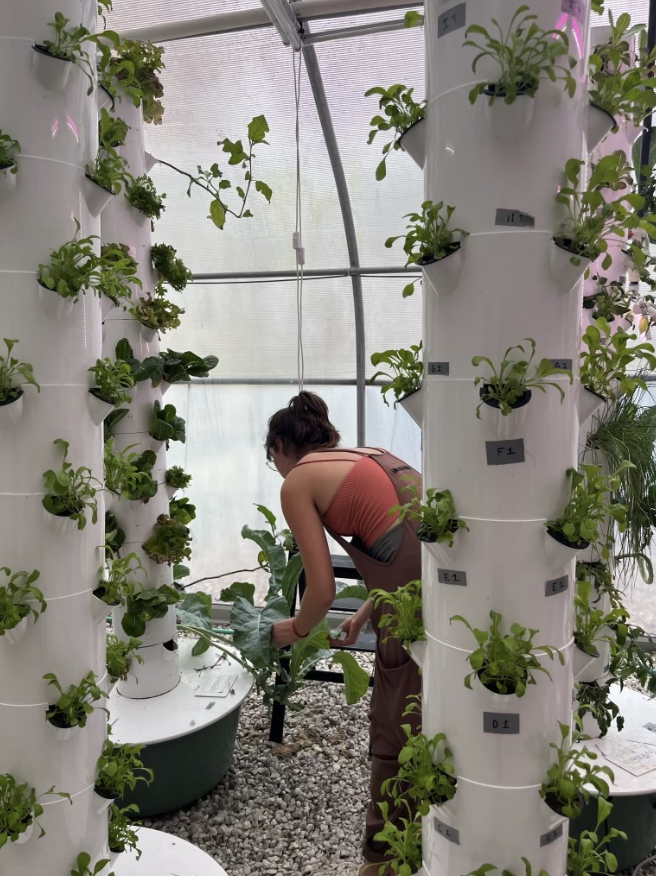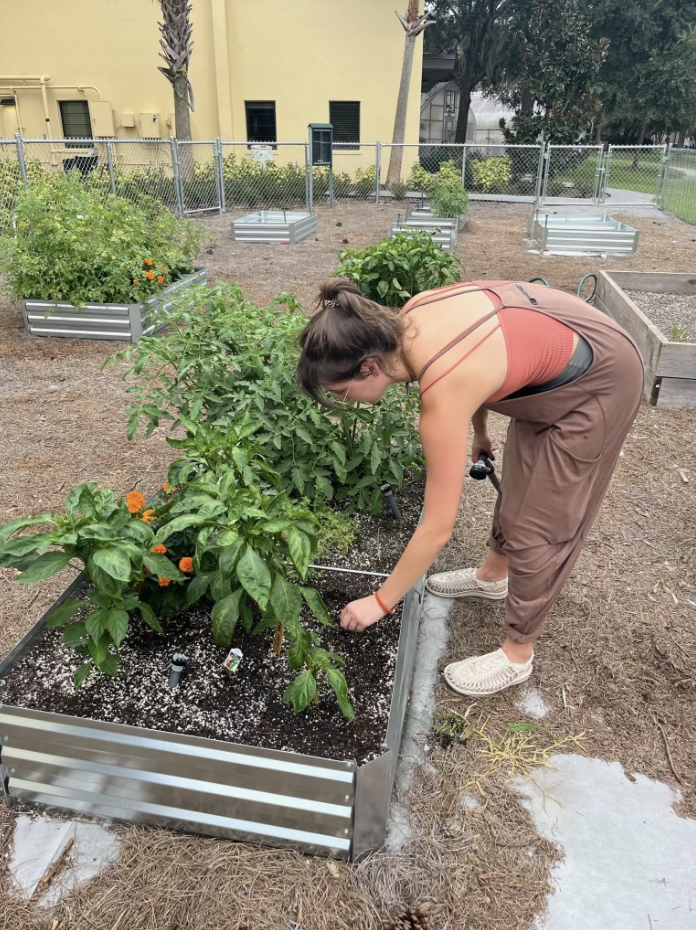
Nestled behind Elizabeth Hall at Rollins College, the Rollins Urban Farm is a vibrant and educational hub for sustainability enthusiasts and budding botanists. In a recent interview with Cecilie Horwitz, Environmental Studies major and sustainability coordinator managing the Urban Farm, we delved into the heart of this eco-friendly project to understand its significance and the novel ways it is being integrated into the curriculum.
One of the noteworthy elements of the Urban Farm is its connection to academic life at Rollins. This semester, the Sustainability Program is partnering with two classes. Dr. Paul Stephenson, Associate Professor of Biology, has been conducting experiments using the farm and hydroponic towers as a lab for his Plant Physiology class. Dr. Stephenson’s Plant Physiology class is actively involved in the farm, with a primary focus on the greenhouse. This engagement brings a fascinating, constructive collaboration between education and practical application. Dr. Stephenson’s class works with hydroponic towers, a unique system for growing plants without soil. The greenhouse serves as the birthplace for many of the farm’s plants.
The students in Dr. Stephenson’s class take the principles they learn in lectures and apply them in a real-world setting. They work with nutrient solutions for the hydroponic towers, creating and experimenting with the right mixtures to ensure the plants thrive. In addition, the class tackles challenges, such as an aphid infestation, using an experimental approach to find eco-friendly solutions.

Melissa Nelson, Director of the Social Impact Hub, is teaching Introduction to the Liberal Arts, a general education course required for students in the Professional Advancement Program which carries a community engagement component that includes students volunteering at the farm. With the support and expertise of Zari St. Jean, Bush Science Center Greenhouse Manager, Nelson’s students started the semester by planting adobo peppers, tomatoes, marigolds, and a rich assortment of herbs.
In addition to a small fruit orchard which was planted to acknowledge former Provost Susan Singer’s commitment to sustainability, Horowitz and her team planted flower beds set to bloom in time for Valentine’s Day. As Horwitz emphasized, the aim is to fill all raised beds before Thanksgiving break and to welcome volunteers with open arms.
The Rollins Urban Farm is a unique garden that offers the Rollins community a chance to explore the wonders of cultivating food through hands-on learning. The produce grown in the Urban Farm is not wasted. It finds its way to the Student Support Foundation, which operates a free food pantry for students. This initiative plays a vital role in addressing food insecurity on campus, providing fresh and locally grown produce for those in need.
Intriguingly, the Urban Farm’s influence reaches beyond the college community. Horowitz has looked for ways to integrate the children at Hume House who are active participants in this green venture, learning and experimenting with different plant varieties. This inclusion is a testament to the farm’s mission of being an educational resource for everyone.
The Rollins Urban Farm is an example of our commitment to sustainability. It provides a unique platform for hands-on learning and exploration while contributing to the college’s mission of being socially and environmentally responsible. With the support of dedicated individuals, enthusiastic volunteers, and community partners, the Urban Farm continues to blossom. If you are interested in getting involved or volunteering, do not hesitate to reach out to chorwitz@rollins.edu, and be a part of this movement.
The opinions on this page do not necessarily reflect those of The Sandspur or Rollins College. Have any additional tips or opinions? Send us your response. We want to hear your voice.






[…] Source link […]
http://www.Journals.Ipt.pw
Op-Ed: Rollins Urban Farm cultivates sustainability and learning – The Sandspur